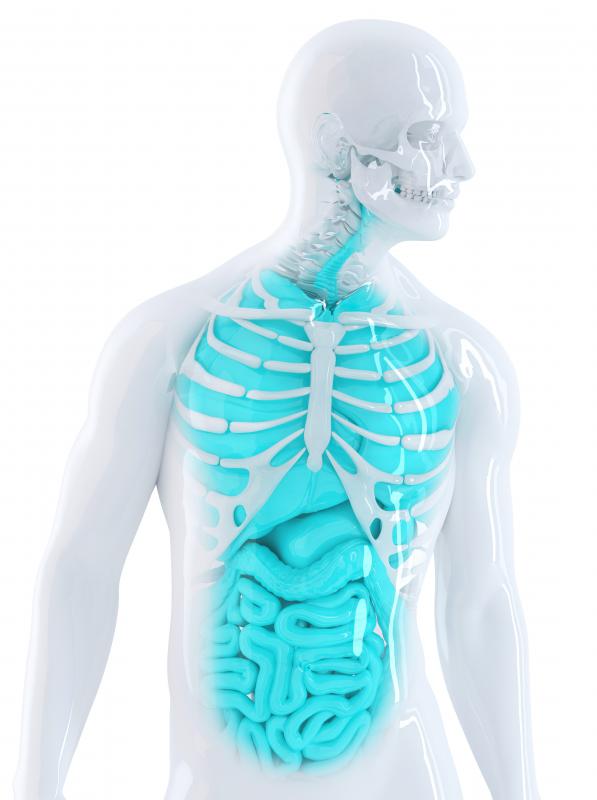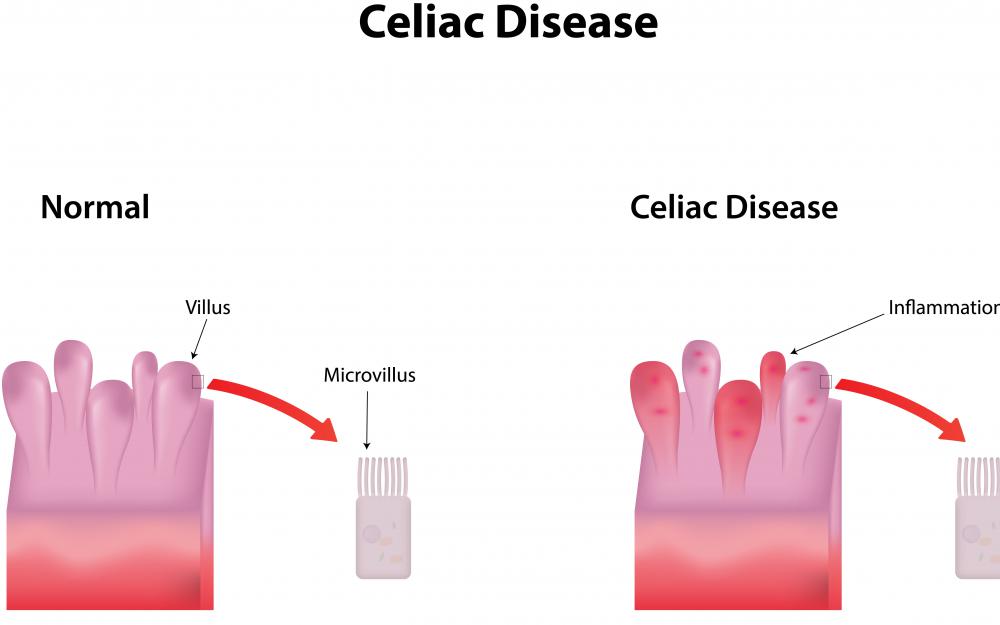At TheHealthBoard, we're committed to delivering accurate, trustworthy information. Our expert-authored content is rigorously fact-checked and sourced from credible authorities. Discover how we uphold the highest standards in providing you with reliable knowledge.
What is Protein-Losing Enteropathy?
Protein-losing enteropathy is a component of a medical condition where an underlying medical issue causes serum proteins in the blood to leak out into the intestine, where they are lost. The patient develops low protein levels and associated symptoms, such as fatigue, weakness, and swelling. Treatment of protein-losing enteropathy involves determining why the body is releasing protein into the intestines and treating this underlying cause. To keep the patient stable in the short term, dietary changes may be made.
Some potential causes include infections in the intestine, Crohn's disease, Celiac disease, and obstructions of the lymph circulation system. A number of gastrointestinal conditions can be linked with protein-losing enteropathy in varying degrees. It can be the primary symptom, or one among a constellation of symptoms experienced by the patient. Blood tests will reveal low levels of serum protein, and the patient may also report symptoms during an interview.

When a doctor identifies low protein, testing can be used to determine why, and protein-losing enteropathy can be determined to be the cause. The next step in treatment involves finding out why the patient is losing protein. Sometimes this is evident, as a patient may be aware of an underlying medical issue already. In these cases, the protein loss reflects poor control of the condition and the need to adjust the treatment plan. For patients with no known history of conditions leading to protein loss, more diagnostic testing is needed to find out what is happening.

Treatment options vary, depending on the cause. For patients with Celiac disease, treating protein-losing enteropathy may be as simple as adjusting the diet to remove foods the patient cannot tolerate. For things like infections, eliminating the bacteria or parasite in the gut should resolve the problem. Treatment options for other conditions can include medication and surgery. In some instances, it will not be possible to cure the underlying cause, but it can be controlled and monitored to prevent or limit protein loss in the future.

In addition to being observed in humans, protein-losing enteropathy can also be a problem for animals. It can be harder to identify and treat in pets and other animals, as they do not report their symptoms like human patients do. Symptoms like malaise and poor appetite can be warning signs, and bloodwork will reveal the abnormally low serum protein, allowing a veterinarian to start pursuing more testing to find out what is wrong.
AS FEATURED ON:
AS FEATURED ON:














Discussion Comments
U have difficulty in maintaining a healthy blood protein level, according to the attendants at the plasma center where I donate. I always eat a protein-rich meal the night before and a good breakfast the day of my donations, but my levels are still around 6.0, barely high enough to donate. Is this a serious problem? I am in good health otherwise.
Post your comments